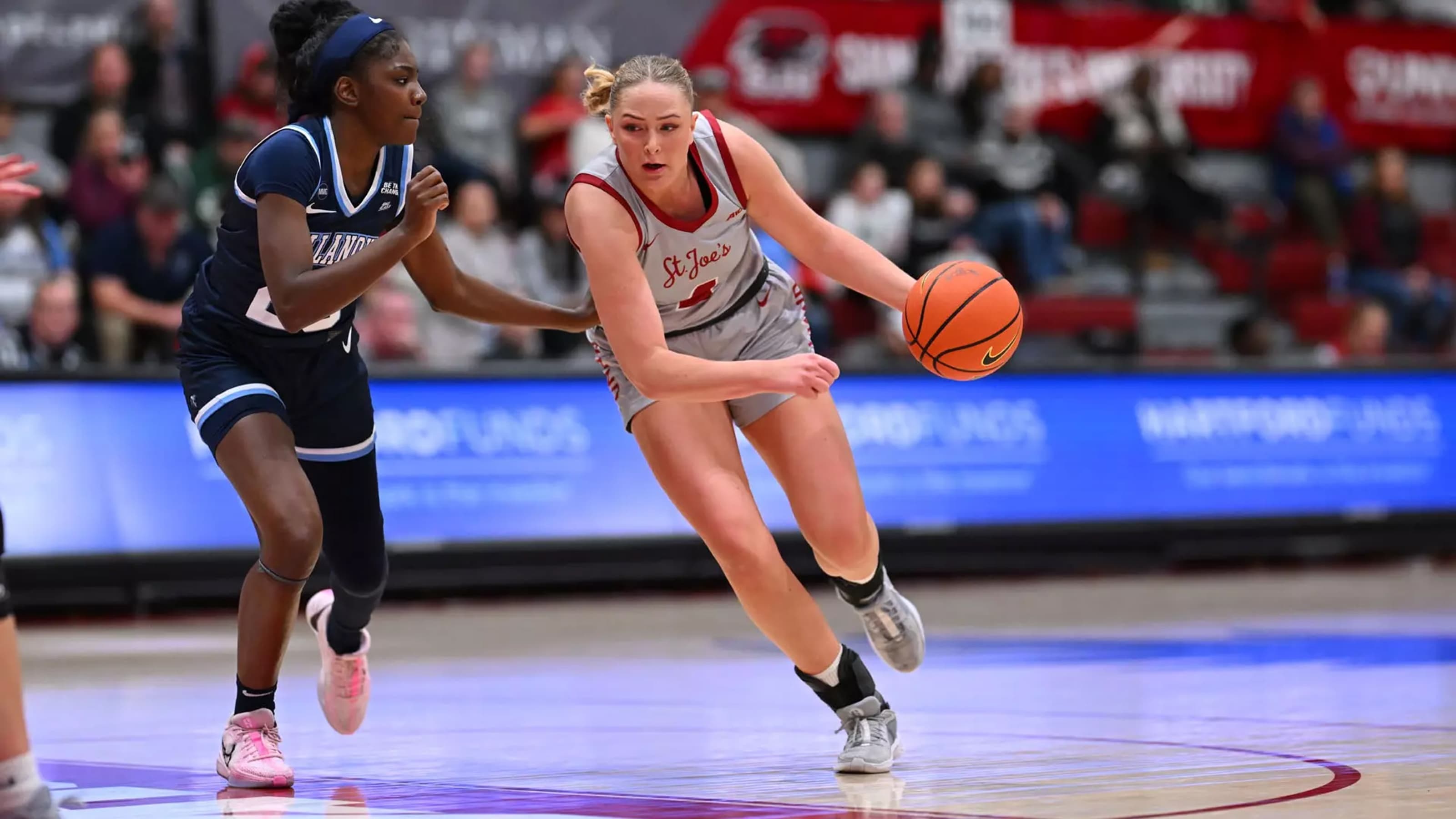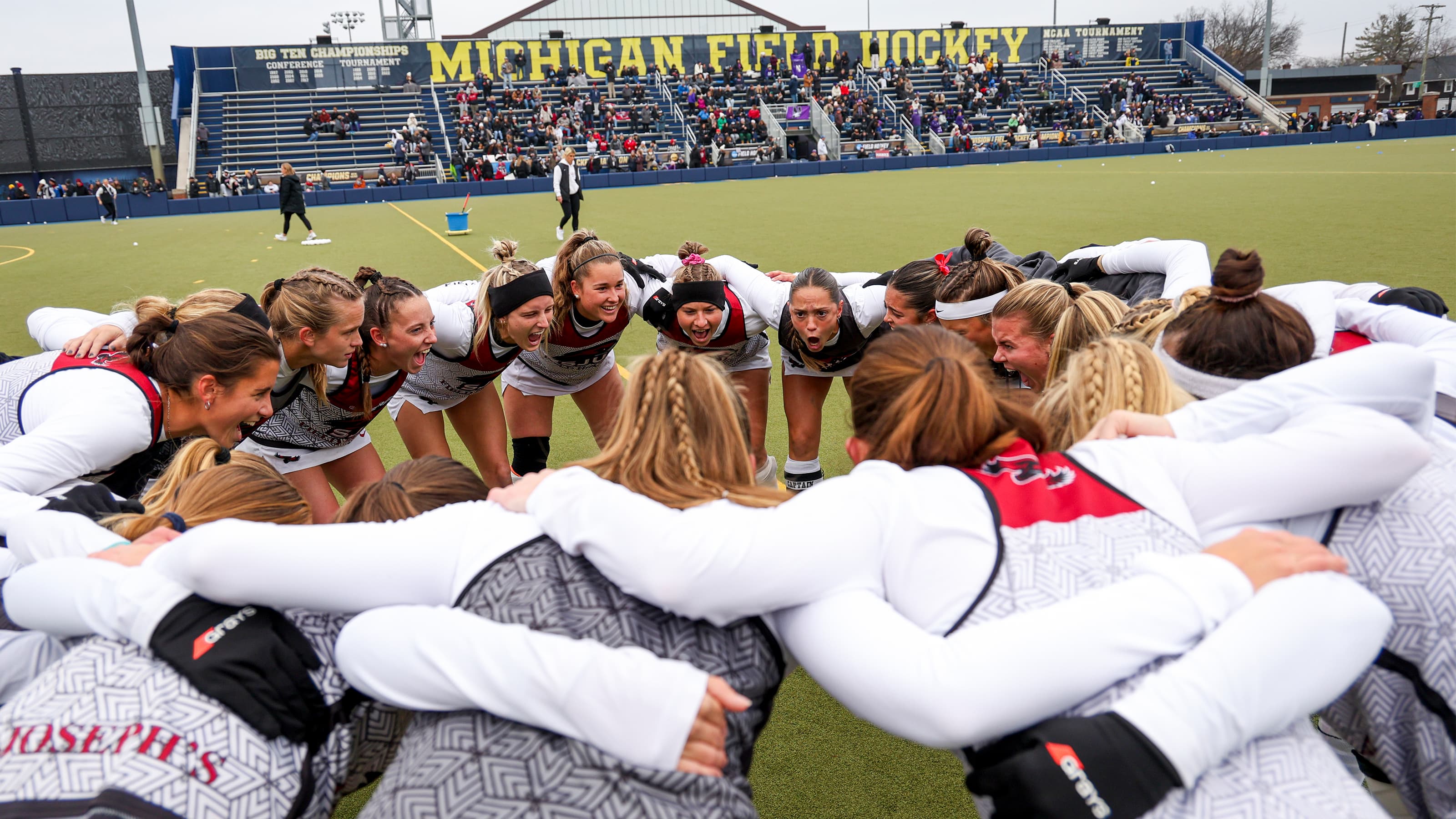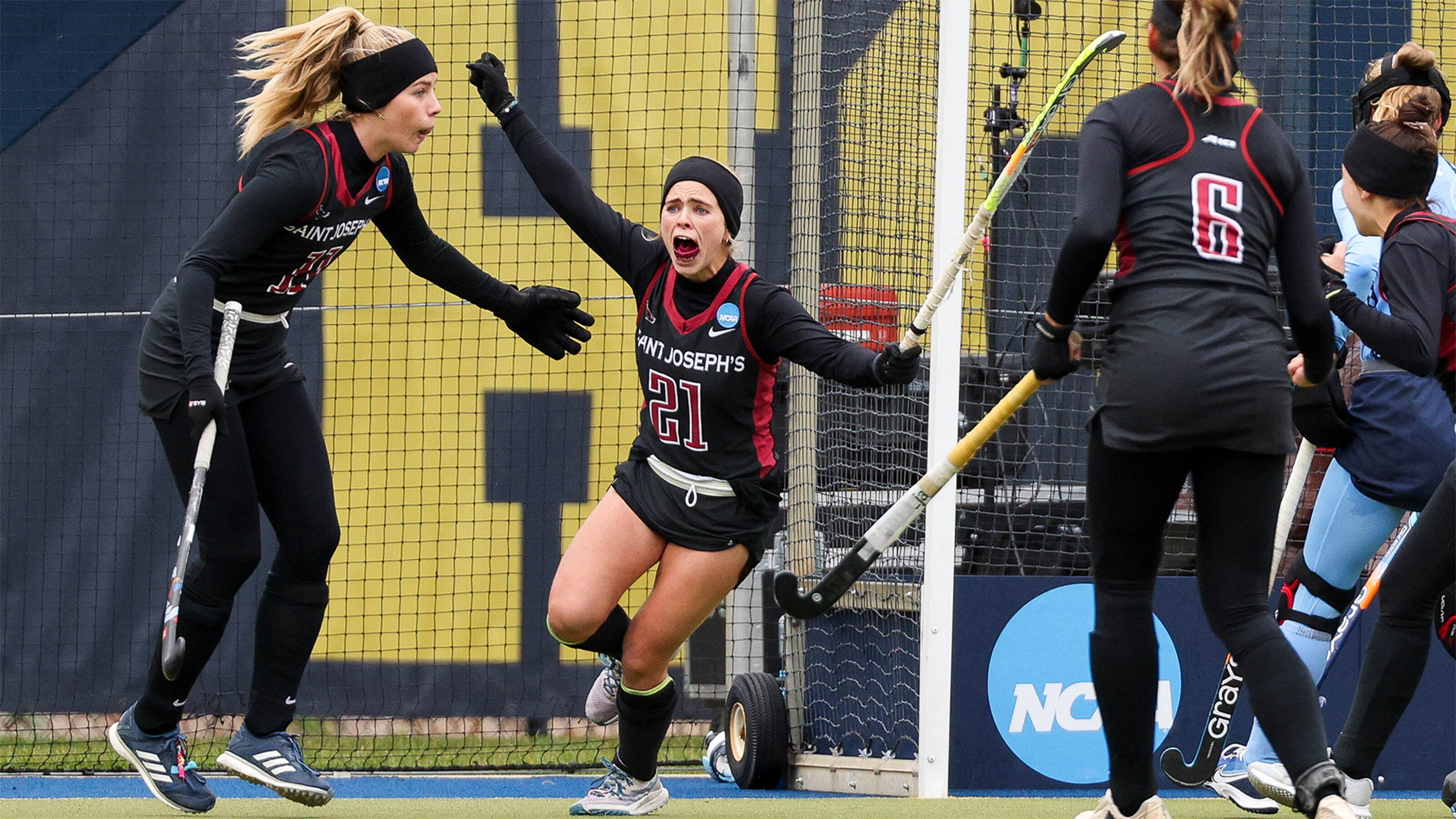Student-Athletes Take Charge in Diversity, Equity and Inclusion Initiatives
Panel discussions led by student-athletes help make conversations of diversity, equity and inclusion more commonplace within St. Joe’s athletics.

Practice, strength training and reviewing game film and are all routine aspects of being a student athlete. Over the past year, the Saint Joseph’s athletics department has also worked to make conversations of diversity equity and inclusion (DEI) just as commonplace as those other elements for Hawk student-athletes.
“We’re always looking to get better on the field, practicing, studying, film, doing everything we can, and this is no different,” Bobby Hastie, a senior on the cross country team, says. “It’s a new area for everyone and we really need to start having conversations to improve our literacy in diversity and inclusion.”
Hastie was recruited by Mary Sheenan, senior captain of the women’s basketball team, to be part of a student working group to help facilitate discussions of DEI within the athletics department.
Sheehan wrote down a list of fellow student-athletes she thought might be interested in leading the panel and sent emails to each of them. Every person she reached out to said yes.
For Sheehan, the initiative demonstrates the sense of responsibility she feels all St. Joe’s student-athletes try to embody.
“We hold each other accountable to be great athletes, great students and also represent St. Joe’s athletics the best way we can — so holding each other accountable to actually be good people, good teammates and good representatives in the community as well,” Sheehan says.
The panel of student-athletes organized five zoom meetings throughout the fall semester to meet with every team in the department. It wasn't mandatory, but Hastie estimates around 250 student-athletes attended the sessions.
In August, the NCAA mandated each institution name an Athletics Diversity and Inclusion Designee (ADID) to be the point of communication for information around inclusive programs, emerging diversity issues and other related equity initiatives. Jill Bodensteiner, director of athletics, invited Christina Foggie, director of special projects and special assistant to the athletics director, to take on that position for St. Joe’s.
“A primary goal in St. Joe’s athletics is to help each student-athlete reach their potential as people, as students and as athletes,” Bodensteiner says. “That can’t happen for a student-athlete who isn’t accepted for who they are, or feels ostracized, based on race, ethnicity, LGBTQIA+ membership, religion, and so on.”
In the new role, Foggie began coordinating a diversity and inclusion working group comprising 30 individuals including coaches, administrators and student-athletes to immediately evaluate the state of DEI within St. Joe’s athletics. As a result, the working group developed the SJU Athletics Diversity, Equity and Inclusion Action Plan as a road map for all constituents on how SJU athletics will foster a diverse and inclusive environment.
“That action plan is online for everyone to see it not only as a resource guide, but also as a document that holds us accountable,” Foggie says. “It’s something that we put out there to the public so that we can walk the walk and not just talk the talk.”
During the committee’s discussions, the student-athletes drove the conversation, Foggie says. These DEI initiatives inspired them to create their own panel for peer-to-peer discussions.
The student-athletes wanted to flip the top-down approach and instead of getting lectures or instructions from coaches or athletic administrators, they decided it would be more productive to have conversations among just athletes. What they found was less hesitation to ask questions and more active engagement.
Langston Livingston, a graduate student on the baseball team, is a member of the student panel and found the Zoom sessions helped the student-athletes connect with each other more and learn about their different life experiences.
“Having it be [only] students we felt was a lot better and the conversation kind of flowed more. People were definitely more open to not only speaking their own minds but also hearing other people's points of view,” Livingston says.
Another member of the panel, Aliyah Stokes, a graduate student on the track and field team, found the conversations helped her to learn more about the backgrounds of her peers.
“I think that the diversity and inclusion peer panel can really make a difference because it makes people relate a little more,” Stokes said. “Having people from your community, from your team, from other teams going through the same thing allows it to be more personal and I feel like it does make a difference when someone makes that connection.”
The panel of student-athletes created topics and discussion points and organized Zoom sessions with each of the teams. In the sessions, they shared personal stories and experiences, talked about ways to call out microaggressions, and asked questions about the nuances of DEI.
For Foggie, inclusion within athletics is particularly important because of the diversity of the student-athletes who come from many different backgrounds and experiences that make up these teams.
“It’s so important when you’re trying to create the best culture on a team that you can have a team culture that welcomes any and every one,” Foggie says. “We always want diversity and so navigating that and seeing how you can build team chemistry while also just being there for your teammates is really the essential piece of DEI.”
Hastie says in their last Zoom session of the semester they talked about the effort to “break down the wall” surrounding conversations of DEI.
“There’s a wall and we’re just taking a sledgehammer to it,” Hastie says. “We’re starting to break down the wall. We’re starting to break down these issues to make it more comfortable to talk about and make it more prominent in everyday conversations.”



